2016 sucked. “I know it. You know it. We all know it”, as the Orange Menace said. Prince died, Brexit happened, and a petulant 70 year-old man-baby won the U.S. presidential election by lying, harassing women and gluing his finger and thumb together when he spoke. Beneath this man-baby’s (very) thin skin lies another, smaller, version of himself. And another one beneath that. And another. And another… It’s a common trait among Russian toys.
The Oxford English Dictionary’s word of the year for 2016 was “post-truth”. God. Remember last year when it was literally an emoji with tears of joy? Those were the days. Now it’s Samsung’s screaming emoji with a ghost flying out of its mouth.
In our new post-truth world, experts are seen as “elitist”, Nazis are called the “alt-right”, and the dissemination of fake news is a legitimate, real-life problem and not just some ominous plotline from a George Orwell novel. (The latter case being partly due to many red baseball cap enthusiasts getting their “news” from – shall we say – non-traditional sources? You know… renowned sites like batshitcrazyrightwingpropaganda.com and hillaryclintonisthedevil-nolikeliterallythedevilwithhornsatailandeverything.org.)
But that’s 2016 for you. It may perhaps become short-hand for “terrible” for years to come: “Dear God, the Greek salad over at Trump Grill was just awful. I mean it was, like, 2016-bad.”
Movie-wise, this year was a little better. Although I don’t think it was an especially stellar year. Sure, there were good films here and there, but, rather aptly, many of the best films I’d seen this year were in fact originally released last year. They just didn’t get round to opening in the U.K. until this year. And, in the strange, elusive tradition of movie distribution, most of the films that critics are calling the best of 2016 won’t come out over here until… yes, 2017. Among them are “Moonlight”, “La La Land”, “Silence”, “Toni Erdmann”, “Elle”, “Jackie”, “Manchester by the Sea”, “I Am Not Your Negro”, “Cameraperson”, “The Fits” and “The Handmaiden”. All of which I haven’t seen. And it’s killing me.
To be honest, movie culture in general was a bit up and down this year. Well mostly down. Sort of like the pound ever since 23rd June. Back in January there was anger at the Oscar nominations for being whiter than Donald Trump’s electorate. Then, in the spring, a bunch of sad, moaning misogynists started bitching about talented women starring in a “Ghostbusters” remake. ‘It’s just that “Ghostbusters” was such an important part of my childhood,’ they cried, failing to see that they were still living it, having never actually grown up.
The summer didn’t fare too well either this year. The U.K.’s economy started plummeting, Theresa May became Prime Minister, and people started to wonder whether they’ll soon have to add the word “Supremacist” in between the words “White” and “House”.
Annoyingly, however, the summer movies weren’t much of a saviour. Sadly they were really rather poor – so poor in fact that, along with meagre box office turnouts, it prompted many to ask the question that gets mandatorily chucked around every couple of years or so: “Are movies dead?” Well I, for one, sincerely hope not. But then again, what with all the nifty work Death has been doing with celebrities these days, one cannot be too sure.
Nevertheless, that all isn’t to say that there weren’t some wonderful films over the past twelve months. There were; each one, in its own way, reminding me why I adore the movies. And there were one or two films that proved to be simply sensational. Here are a few films released in the U.K. and Ireland this year (in alphabetical order) that, for me, made 2016 a little more bearable and a little less rotten.
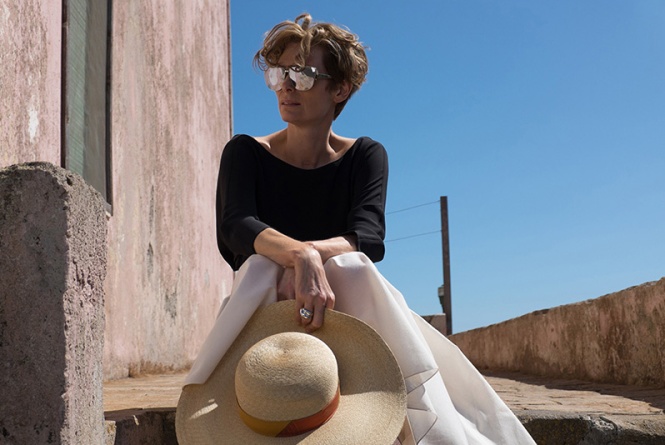
A Bigger Splash
Dir: Luca Guadagnino
Sunshine, rock ‘n’ roll, sex and booze. Set in a picturesque volcanic island off the coast of Sicily, “A Bigger Splash” is about a mute rock star (Tilda Swinton) and her lover (Matthias Schoenaerts) having to entertain two unexpected guests in their Italian resort. The guests: a very loquacious Ralph Fiennes and a very salacious Dakota Johnson. Swinton commands the screen with her raspy whispering and cool-as-hell eye shadow, while Fiennes frolics about naked and never shuts up. The scene in which he dances in the sun to The Rolling Stones’ “Emotional Rescue” is a particular highlight. It’s a cool, seductive quasi-thriller that reeks of the cool, seductive sensibilities of 1960s European cinema.
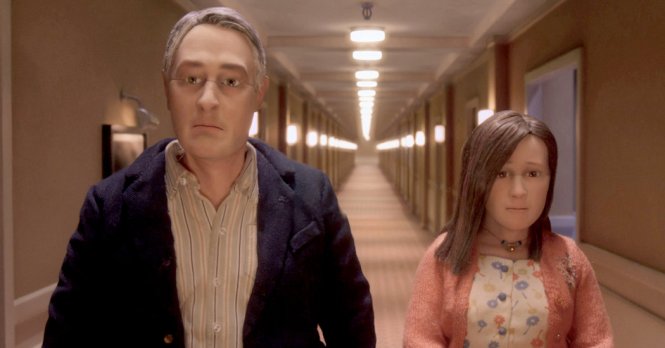
Anomalisa
Dir: Charlie Kaufman
Charlie Kaufman is a master. He’s a sort of geographer of the mind. He explores the human condition like no other filmmaker and presents it on-screen in the most lyrical, idiosyncratic way imaginable. “Anomalisa” is his latest project – and it’s another treasure. It’s a bitter-sweet tale of loneliness and the banality of existence gorgeously brought to life by incredible, intricate puppetry and sophisticated computer trickery. It’s both deeply moving and very, very human. And any film that references “My Man Godfrey” with as much wit as Kaufman does here is a win in my books.

Chi-Raq
Dir: Spike Lee
Spike Lee’s “Chi-Raq” is one of the most original – and one of the most daring – films of the year. It’s a messy, sprawling update of Aristophanes’s “Lysistrata”, re-appropriated to Chicago’s modern-day violent south side – with dialogue almost exclusively in verse. It’s a commentary on gang violence in America, but also on the Black Lives Matter movement, police brutality and feminism. It’s been a while since a Spike Lee joint was this bold, this boisterious, this sexy, and this urgent. (For full review, see here.)

Creed
Dir: Ryan Coogler
“Creed” is a rousing reboot/sequel/spin-off of the Rocky franchise. Coogler’s film comes out fighting, throwing all the right japs and landing every punch. It’s a brilliantly directed and wonderfully acted film; but one that’s thoroughly and unashamedly a “Rocky” movie. It boasts all the boxing clichés (the training montage, the step climbing, the “I gotta prove myself” narrative) but it does them all so incredibly well that it never matters. It’s old school storytelling done with contemporary style. And it’ll stir your emotions like few other films this year.
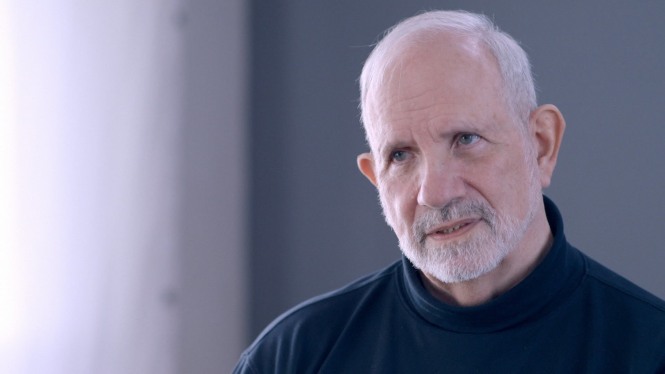
De Palma
Dir: Noah Baumbach and Jake Paltrow
This documentary about filmmaker Brian De Palma – the enfant terrible of the ‘70s Movie Brats – proved to be one of the most pleasurable viewing experiences of 2016. I spent most of the doc simply swooning over De Palma’s craft, thinking to myself, “God, movies used to look like this.” How can you not when you’re greeted with clips of “Carrie”, “Blow Out” and “Carlito’s Way”? (Not to mention the Hitchcock films that inspired him.) This is a rare opportunity to see the man himself discuss his work. And he and his career make a strongly compelling subject. Essential viewing for movie nerds.
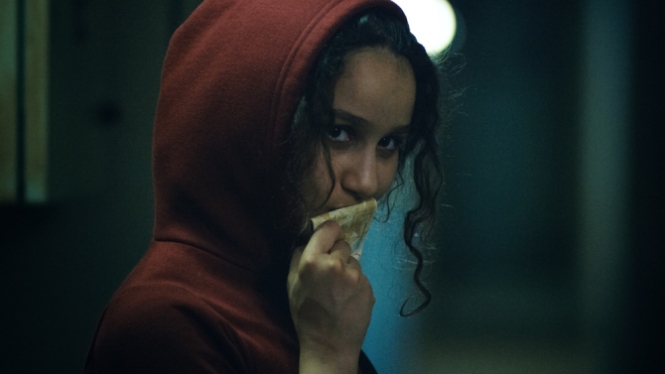
Divines
Dir: Uda Benyamina
This fiery French flick from director Uda Benyamina concerns two Muslim teenage girls that start selling drugs for a local gangster to escape the horrors of poverty and the emptiness of school. The girls, Dounia and Maimouna (fantastically played by Oulaya Amamra and Déborah Lukumuena), are a pair of defiant, determined rebels from the Parisian slums – rebels that dream of living the high-life. They are often seen swaying, flicking imaginary bills from their palms, shouting “Money, money, money!” Together they make the sweetest, most heartfelt on-screen duo of the year. The film will charm you, move you, and devastate you.

Green Room
Dir: Jeremy Saulnier
I saw this film at the Belfast Film Festival way back in April. I saw it with a packed audience, all geared up and eager to see what Jeremy Saulnier’s latest has in store. Would it pack a punch? Would it be as gripping as “Blue Ruin”? How is Patrick Stewart going to fare playing a neo-Nazi (ahem, sorry – “member of the alt-right” blah, blah, blah)? The answers were as follows: “Yes”, “Yes” and “With terrifying effectiveness.” “Green Room” is a smart, gnarly film about a rock band battling a gang of white supremacist punks in the American Northwest. It grimly depicts a world where neo-Nazis emerge from the shadows and take up arms for battle – in hindsight, a sad, prophetic signal of political things to come.

The Hateful Eight
Dir: Quentin Tarantino
This sprawling, claustrophobic western from Tarantino proves that he’s still one of the best filmmakers around. It’s a great example of a modern director understanding and exercising sheer cinematic craft. Aside from your Spielbergs and your Scorseses – who are maybe the best in the world at it – more often than not you have to look to the Far East for contemporary examples stellar craft (see Wong Kar-wai, Park Chan-wook and Bong Joon-ho). But Tarantino can hold his own. His camera becomes another character in his films. And, in “The Hateful Eight”, his camera follows a group of resentful, despicable characters all cooped up in a tavern during a bitter snowstorm. But duplicity and (inevitably) bloodshed are on the horizon.

The Invitation
Dir: Karyn Kusama
Possibly the most disturbing film of the year. Karyn Kusama’s brilliantly pessimistic film about a dinner party gone wrong has remarkable parallels with today’s political climate – and not in a fluffy, everything’s-going-to-be-all-right kind of way. Phil Hay and Matt Manfredi’s screenplay is smart, darkly funny and extremely tense. It wonderfully captures the aching sense of paranoia in a way that only the best screenwriting can. It also contains one of the most memorable final shots of any American film in years.
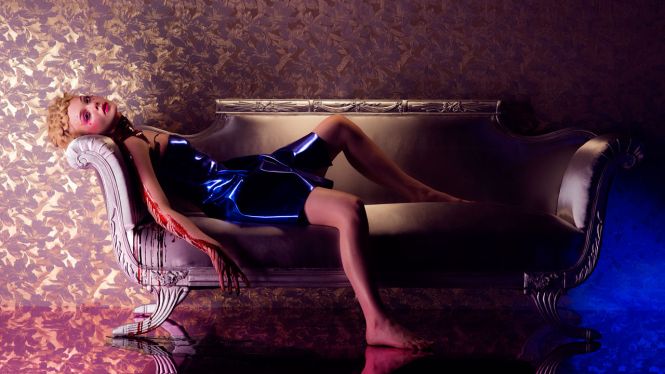
The Neon Demon
Dir: Nicolas Winding Refn
This hypnotic, gorgeously shot feature from Nicolas Winding Refn stars Elle Fanning as an aspiring model looking to break into the L.A. fashion scene. But, being a Refn film, the plot isn’t important. Visual metaphors and vividly rendered symbolism are where his interests lie. And boy is it vividly rendered. Argentine cinematographer Natasha Braier frequently captures her subjects bathed in a devilish neon light – deliberately aloof characters that stiffly stare into space like shop window dummies, revelling in their own icy narcissism. It’s convulsive, it’s pulsating – it’s part satire, part black comedy – and the whole thing feels like a particularly beautiful (but also particularly horrible) dream.

Sing Street
Dir: John Carney
An unabashedly joyous film from Irish writer-director John Carney, the man who brought us the 2006 indie musical “Once”. “Sing Street” revolves around a 14 year-old kid in 1980s Dublin who forms a band to escape the miseries of school life and the splitting up of his parents. But it’s also to impress a girl. (Actually, it’s mainly to impress a girl.) The songs are glorious little pop records, incorrigibly accompanied by the band’s amateur attempts at making their own music videos. If this film doesn’t leave you smiling, you have no heart. It’s that simple.

13th
Dir: Ava DuVernay
This DuVernay documentary draws fascinating parallels between the mass incarcerations of African-Americans in the U.S. to the 13th Amendment of the nation’s Constitution. More specifically, it argues that a clause within the 13th Amendment (which prohibits slavery in the U.S.) stating “except as punishment for a crime” allowed for the lawful continuation of slavery into the 21st Century. The doc forces us to take a deep look – or rather, a long, hard stare – at the history of the American prison system, and how it is – and has always been – a direct reflection of the country’s history of racial discrimination.
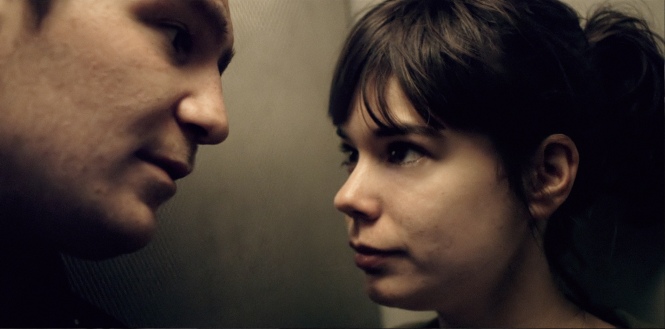
Victoria
Dir: Sebastian Schipper
The tagline of this film pretty much sums it up: “One girl. One city. One night. One take.” The girl is Victoria (Laia Costa), a young Spanish woman who gets involved with a few local guys on a night out. The city is Berlin. The night is one in which the boys are told they must commit a bank robbery to appease a local crime boss – and Victoria slowly gets sucked in. The one take is a gimmick, but it’s pulled off with incredible skill and becomes remarkably effective. It’s employed because the story necessitates it, making the film more than just an impressive technical achievement.

World of Tomorrow
Dir: Don Hertzfeldt
This animated short became available on Vimeo back in January, roughly the same time it became available to stream on Netflix in the U.K. It’s about a little toddler, Emily Prime, who is taken on a tour of her own distant future by Emily, a future version of herself. It’s barely 17-minutes long, yet it packs more creativity, more insightfulness and more laughs into those 17 minutes than pretty much any other film this year. Developed by the wickedly talented Don Hertzfeldt, it is (perhaps unsurprisingly) a true marvel of animation. It may be slight, but, for me, it’s probably the film of the year.
A couple more certainly worth checking out: “The Nice Guys”, “Don’t Breathe”, “Love and Friendship”, “Hail, Caesar!”, “Hunt for the Wilderpeople”, “Hell or High Water”, “The Witch”.

